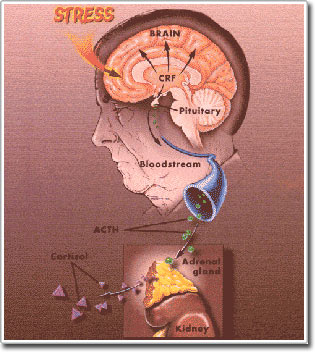The opposite of human emotions
Woody Allen wrote in In Love and Death : 'Love is suffering, happiness is love. Happiness then hurts'. The paradox of happiness and suffering can be a characteristic of sadness. A new study of brain region activity by using functional magnetic resonance imaging functional resonance imaging may help to understand why happiness and suffering are related to each other in sadness.
Standford researchers have recruited depressed and depressed volunteers. They will have brain scans through fMRI while they have been involved in an activity that shows a winning mood or losing money. Dr. Brian Knutson, the first author of the paper explained the results of the study: 'When they know in advance that they will win money, both sad and unhappy people show neurological activity in the nucleus brain region. accumbens, a region of the brain that creates a happy reward. However, only those who are sad, the activity increases greatly in the frontal brain region called anterior cingulate, an area related to conflict in emotions'.
 Dr. John H. Krystal, editor of Biological Psychiatry, affiliated with Yale University Medical School and the VA Connecticut Healthcare System health care system notes: Mixing search results find it complicated that sadness is not simply a lack of happy joy rewarded, instead it is a trait in the mental process of punishment. Dr. Knutson agrees and comments: 'The results found matching the sadness formula are difficulties in handling positive information and suggest that more specifically, those who are depressed actually have the conflict when they face the possibility of receiving rewards'.
Dr. John H. Krystal, editor of Biological Psychiatry, affiliated with Yale University Medical School and the VA Connecticut Healthcare System health care system notes: Mixing search results find it complicated that sadness is not simply a lack of happy joy rewarded, instead it is a trait in the mental process of punishment. Dr. Knutson agrees and comments: 'The results found matching the sadness formula are difficulties in handling positive information and suggest that more specifically, those who are depressed actually have the conflict when they face the possibility of receiving rewards'.
Dr. Krystal concludes: 'The curious curiosity of this work is that some forms of depression may be possible, not because of the lack of joy but because of the presence of frustration or pain. morale'. Dr. Knutson and his colleagues are currently investigating whether increased intoxication by knowing the reward will hinder returning to normal when depressed.
The article 'Neural Responses to Monetary Incentives in Major Depression' is caused by Brian Knutson, Jamil P. Bhanji, Rebecca E. Cooney, Lauren Y. Atlas and Ian H. Gotlib.The authors are affiliated with Stanford University's Department of Psychology at Stanford, California.The article is published on Biological Psychiatry issue 7 on April 1, 2008, published by Elsevier.
- Dogs can really understand people's emotions
- Classify 4 types of true emotions on the human face
- Video: Dogs know how to distinguish emotions on people's faces
- 5 'deadly' emotions that we should avoid
- Light can also influence people's emotions
- The brain activity corresponds to every human emotion
- Robot expresses emotions
- Flowers make human emotions sublimated
- The wearer will know how to detect the sad emotion
- The device can read human emotions
- Robot expresses emotions like humans
- Discovering the secret to controlling emotions
 'Fine laughs' - Scary and painful torture in ancient times
'Fine laughs' - Scary and painful torture in ancient times The sequence of numbers 142857 of the Egyptian pyramids is known as the strangest number in the world - Why?
The sequence of numbers 142857 of the Egyptian pyramids is known as the strangest number in the world - Why? History of the iron
History of the iron What is alum?
What is alum?